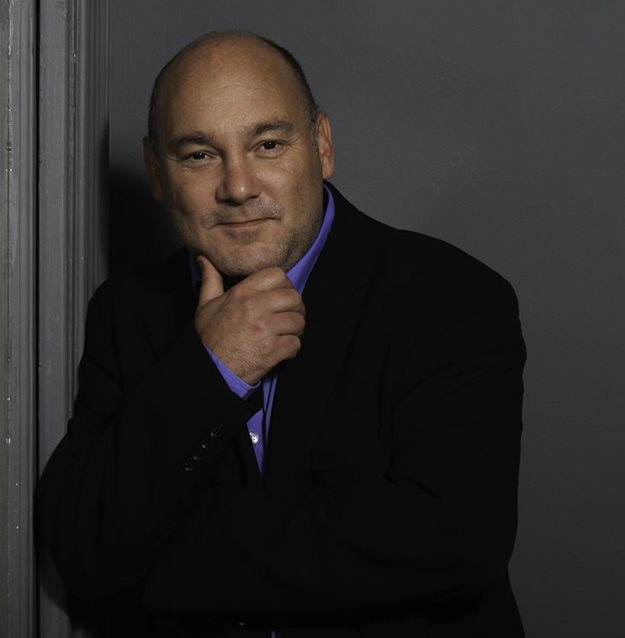Marketing & Media trends
Industry trends
BizTrends Sponsors
Trending
Jobs
- Marketing Manager Johannesburg
#BizTrends2020: Three mega trends that will shape the future of PR and communication

When social media appeared in the 2000s it saw the emergence of a whole new digital industry – new agencies focusing on advising brands and even the platforms creating analytics and audience measurement systems to monetise their sites. Many believe that the public relations industry was caught unawares and that they struggled to catch up with the initial opportunities. It is now critical that we prepare for the new wave of changes upon us.
Here are my three megatrends that will impact PR hugely:
Artificial intelligence/4IR/5G – upskilling PR skills
A lot has been said about the Fourth Industrial Revolution (4IR) and the many applications it will have – from self-driving vehicles, drone deliveries, augmented, virtual reality and artificial intelligence (AI). However, as the world is starting to see the introduction of the latest 5th Generation (or 5G) advanced wireless systems, it will usher in a whole new internet era which will bring many of these peripheral technologies to centre stage.
Prisa president, Dalien Rene Benecke, is of the view that
Disruption in public relations starts with a critical look at our current practices, understanding our influence and harnessing the opportunities 4IR and AI offer.However, few actually understand the myriad of opportunities, changes and disruption this will create. Banking has been one of the most visible sectors already affected, with thousands of retrenchments in recent times – and not just in South Africa. As clients have moved to digital platforms it has lessened the need for brick and mortar branches.
With thousands of journalism jobs going redundant across the world, declining readership and fake news, the whole media industry has seen major upheavals. Earlier this year the New York Times reported that almost a third of content published by Bloomberg News, the international news agency, was produced using AI. Other early adopters like The Associated Press have already been producing thousands of market reports using AI and Forbes and other news outlets are also starting to introduce these technologies.
New technologies such as 5G will rapidly advance the evolution of the internet of things (IoT) which will make virtual and augmented reality much more usable than before – with very high-speed mobile data transmission now possible.
Data – PR measurement and evaluation opportunities
With much more data being created by these new technologies it will fundamentally change the way we measure and evaluate audience behaviour and the impact of communication.
Domo, a US-based cloud software company, estimates that over 2.5 quintillion bytes of data are being created every single day. New IoT devices will exponentially grow the amount of data being generated. Communication practitioners will need to know how to access, connect and evaluate valuable data for much deeper insights. The days of using clipping books and AVEs (advertising value equivalents) to prove “value” to the C-Suite are long gone.
Connecting public relations and communication activities to organisational goals, outputs, outcomes and impact makes the PR practices much more strategic and valuable. The secret is to create proper plans with measurable objectives and identifying the relevant data to track. PR measurement and evaluation is becoming much less of a rearview mirror but rather a forward-looking tool to better plan and implement successful campaigns.
The vast majority of so-called big-data is not being analysed today. Major insights can, however, be made from analysing unstructured data – such as emails and reviews of products. New data-mining and artificial intelligence tools make it much easier to structure such data to gain better insights.
Trust and privacy
The US-based Institute for Public Relations (IPR) has a great definition of Trust in PR:
If the purpose of public relations is to establish and maintain relationships with key stakeholders through communication and other efforts, then public relations is essentially in the trust-making business.I recently had the pleasure of chairing a panel on Fake News and Disinformation at the AMEC Summit in Prague. IPR President Tina McCorkindale shared some findings ahead of the launch “Disinformation in Society” 2019, a study which examines how disinformation – news that is deliberately misleading – is spread in the United States.
An interesting finding was that when it comes to professions that work in distributing information only 45% of respondents found journalists trustworthy. Public relations practitioners were trailing at 26%. CEOs (22%) and advertisers (20%) were deemed even less trustworthy.
This paints a clear picture of how fake news, disinformation and a break-down of trust has affected modern society – not just in the US but globally. People are disillusioned with politicians, governments, brands, even celebrities.
Political shenanigans, corporate misdeeds and privacy breaches and unethical behaviour such as the Cambridge Analytica scandals and others, have seen people fatigued with breaches of trust and privacy.
The European General Data Protection Regulation (GDPR) became law in May 2018 and aims to give European citizens control over their personal data both inside Europe but also across the world – even affecting us in South Africa.
Building a culture of transparency and trust will become ever more crucial to successfully engage various organisational stakeholders.
Public relations is definitely best placed for the task – but it will urgently need to reinvent itself to adopt new technologies, measurement and evaluation best practices and successfully build trust to carefully navigate the evolving challenges that organisations face.
















